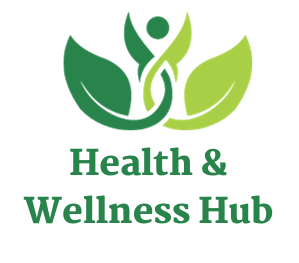Table of Contents
ToggleIntroduction:
Pregnancy is a time of excitement and hope, but it also comes with responsibilities, especially in the early days. The first trimester is very important for your baby’s development, and taking the right steps can ensure a healthy pregnancy. In this blog, we’ll cover essential aspects of early pregnancy care, including physical health, emotional well-being, nutrition, and lifestyle adjustments.
1. Confirm your pregnancy.
The first step after you suspect you are pregnant is to confirm it. Home pregnancy tests are a quick and easy way to check, but it’s important to follow up with a health care provider to confirm pregnancy and establish a care plan. Your doctor will likely schedule an ultrasound to determine the gestational age and make sure everything is going as normal.

2. Schedule prenatal care
Regular prenatal care is important to monitor the health of both you and your baby. During these visits, your health care provider will check your blood pressure, weight, and overall health. They will also monitor the growth and development of the child. Early and continued prenatal care can help identify and manage potential problems before they become serious.
3. Focus on nutrition.
Proper nutrition is crucial during pregnancy, as your baby’s development relies heavily on what you eat. Here are some nutritional guidelines for the early days:
Folic Acid:
Essential for preventing neural tube defects, folic acid should be taken as soon as you plan to conceive or find out you’re pregnant. Foods rich in folic acid include leafy greens, citrus fruits, beans, and fortified cereals.
Balanced diet:
Aim for a diet rich in fruits, vegetables, whole grains, lean protein and healthy fats. It provides essential vitamins and minerals for your baby’s growth.
Hydration:
Drinking plenty of water helps maintain amniotic fluid levels and increases blood volume during pregnancy.
Avoid harmful foods:
Avoid raw or undercooked meat, unpasteurized dairy products, and fish high in mercury (such as swordfish and mackerel). These can be dangerous for your baby.
4. Take prenatal vitamins.
In addition to a healthy diet, taking prenatal vitamins is recommended to ensure you are getting enough essential nutrients. These vitamins usually include folic acid, iron, calcium and DHA, which are essential for your baby’s development. Consult your healthcare provider to choose the right prenatal vitamin for you.
5. Exercise safely.
Exercise is beneficial during pregnancy, but it’s important to adjust your routine to your new condition. Low-impact activities like walking, swimming, and prenatal yoga are great choices. Exercise can help reduce stress, improve sleep, and relieve common pregnancy symptoms such as back pain and fatigue. Always consult your healthcare provider before starting or continuing an exercise regimen during pregnancy.
6. Manage morning sickness.
Morning sickness is common in the early days of pregnancy and can occur at any time of the day. To manage this:
Eat small, frequent meals: Eating small portions throughout the day can help stabilize blood sugar levels and reduce nausea.
Stay hydrated: Drink fluids regularly, but if water causes nausea, try herbal tea or flavored water.
Ginger: Ginger has been shown to help relieve nausea. Ginger tea, ginger ale or ginger candy can be soothing.
Rest: Fatigue can make nausea worse, so make sure you get plenty of rest.
7. Avoid harmful things.
It’s important to avoid substances that can harm your baby’s development, including:
Alcohol: There is no known safe amount of alcohol during pregnancy, so it is best to avoid it completely.
Tobacco: Smoking during pregnancy can lead to complications such as low birth weight, premature birth, and growth problems. Ask for help to quit if necessary.
Caffeine: Limit your caffeine intake to 200 milligrams per day (about one 12-ounce cup of coffee). High caffeine intake has been linked to miscarriage and low birth weight.
8. Take care of your mental health
Emotional well-being is just as important as physical health during pregnancy. The early days can bring a mix of emotions, including anxiety, excitement, and fear. Here are some tips for managing your mental health:
Practice relaxation techniques: Meditation, deep breathing exercises, and prenatal yoga can help reduce stress and anxiety.
Talk about your feelings: Share your thoughts and concerns with your partner, friends, or a therapist. Sometimes, just talking about your feelings can bring relief.
Be informed: Educating yourself about pregnancy can reduce fear of the unknown. However, be careful where you get your information —
9. Get plenty of rest.
Fatigue is common in early pregnancy due to hormonal changes. Make sleep a priority by establishing a comfortable bedtime routine, and don’t hesitate to take a nap when needed. Adequate rest helps your body adjust to pregnancy and helps manage early pregnancy symptoms.
10. Plan for the future
Early pregnancy is a good time to start thinking about the months ahead. Consider your birth plan, maternity leave, and any lifestyle changes you may need. It’s also a good time to start budgeting for baby-related expenses and preparing your home for a new family member.
11. Listen to your body.
Every pregnancy is unique, and your body will give you clues about what it needs. Whether it’s rest, food or medical attention, listen to your body’s signals and respond accordingly. If something doesn’t feel right, don’t hesitate to contact your healthcare provider.
12. Avoid overexertion.
While it’s important to stay active, it’s equally important to avoid overexertion. Lifting heavy objects, standing for long periods of time, or engaging in high-risk activities can put unnecessary stress on your body. Listen to your body and take breaks when needed.
13. Stay positive and enjoy the journey.
Pregnancy is a transformative experience, and while it comes with challenges, it’s also a time of incredible growth and change. Focus on the positives, celebrate small milestones, and take time to enjoy the journey.
Conclusion
The early days of pregnancy are very important for laying the foundation for a healthy pregnancy and baby. By taking care of your physical health, managing your emotional well-being, and staying informed, you can navigate this exciting time with confidence. Remember to lean on your healthcare provider for guidance and support, and most importantly, listen to your body and enjoy the journey ahead.

